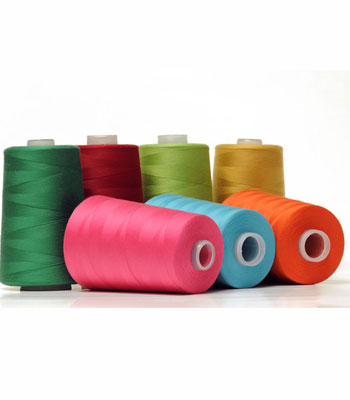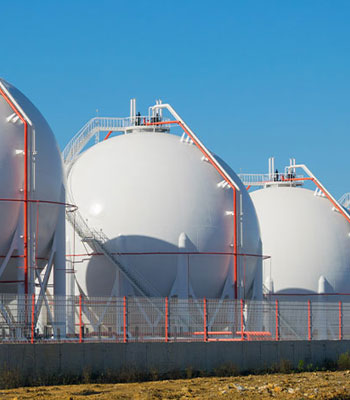The diameter of the viscose fibers varying from 12 to 22 microns depend on the diameter of the holes on the spinnerette (the viscose fibers spinning by passing through spinnerette).
Rayon viscose is made up of natural cellulose such as woods, or cotton linters containing 87-98% alpha-cellulose. After washing the raw materials with boiling alkali and bleaching it with sodium hypochlorite, It is spinnable fibers. The only difference between viscose fiber (Rayon) and cotton and linen is that viscose fiber (Rayon) is similar to paper – a homogeneous paste produced of wood cellulose which is processed to the final product. Fabrics produced of rayon fibers have a relatively high moisture absorption (in some cases up to 50% more than cotton), great breathability, great comfortableness, and favorable dyeability. The low electric charge and good resistance to gutting (called in Persian taltal) are other desirable properties of rayons. Production Method:
All natural materials that have cellulose are good to make viscose fibers. Most of the trees’ lumbers, sugar cane, rice and wheat straws, are always used for viscose fibers production. In different stages raw materials convert to a special paste with a limited amount of impurities, and then converted to fibers after passing through the sppinerette and the coagulation bath. The recent research on the viscose fibers has improved the strength of the fibers. Unlike cotton, increased moisture content reduces durability of viscose fibers, but increases dyeability. In the standard condition, viscose fibers have 12% moisture absorption compare to 8% of cotton fibers. The viscose fibers have less elasticity than cotton fibers, which make it more wrinklable. As the smoothness of the viscose fiber surface, it is brighter than cotton fiber; however, boiling water eliminates its brightness. The viscose fiber resists up to 150 degrees Celsius, but it is still changing color in expose to the sunlight. Similar to cotton, acids cause viscose degradation, but it shows great resistance to alkalis. The length of the viscose fiber is shorter and weaker than cotton. The viscose thermal properties are similar to cotton, yet less than cotton fibers with good ironing properties. Since synthetic fibers do not show wrinkles, waves and folding, they must be modified by chemical and mechanical methods to resemble more natural.
Application of Viscose Fiber: it is used for clothing includes: Blouse, Shirts, women’s clothing, linings, underwears; industrial textiles; non-woven textiles; and synthetic chamois leather; Home Usage such as: Roofing, Pillowcase, Sheets and Handbags.
Viscose Yarn
0,00 €
Viscose is a man-made fiber- recycled fiber- and is the most important member of the Rayon’s fibers family. The raw material used for production of the viscose fibers are cotton linter and wood cellulose (mainly trunks of forest trees), which is a disadvantage of the viscose fibers since it damages the environment. The cross-section of viscose fiber is wavy and with lengths similar to cotton, linen, and wool fibers.
Delivery
Delivery Options Overview
IranMarket provides a comprehensive array of shipping options for diverse needs. Whether you seek cost-effectiveness through sea shipping or secure, specialized handling by trained freight forwarders, we ensure reliable delivery. On this page, you'll find an overview of all available shipping methods.
1. Order the Product and Specify the Delivery Method
2. You Will Receive an Order Confirmation Message
3. Wait for Your Order to Arrive at the port
4. Pick up Your Order at The port area
Small items
| Standard delivery Get it in 2-3 weeks | |
|---|---|
| will delivery through air cargo | |
| Only available for hi-tech products |
What do we mean by small? Just about some unique items in hi-tech products which are high value and small sizes, and better sent through air cargo than sea-ship.
Large items
| Standard delivery: Get it in 4-5 weeks |
| All size items will be delivered through sea shipping |
| Container sizes are 20ft and 40ft |
| All duties and taxes for a destination on customers |
Delivery Terms and Conditions
Delivery Timeframe: Our standard delivery time for products/services is [specify days or weeks]. Any variations in delivery time will be communicated to the client promptly.
Shipping and Handling: Shipping and handling costs will be outlined during checkout or upon inquiry. These costs may vary based on the destination, weight, and nature of the product/service.
Delivery Method: We utilize reputable shipping carriers or our designated delivery services to ensure prompt and secure delivery. Customers will be provided with tracking information once the shipment is dispatched.
Delivery Incoterms: only FOB or CFR incoterms are accepted for delivery.
Delays and Force Majeure: While we strive to meet delivery schedules, unforeseen circumstances or force majeure events may cause delays. In such instances, we will make every effort to inform clients promptly and resolve the issue.
International Deliveries: For international shipments, customers are responsible for any customs duties, taxes, or additional fees imposed by the destination country. We advise clients to be aware of their country's import regulations.
Clients acknowledge and agree to abide by the stated delivery terms and conditions by proceeding with an order.
These terms are subject to change, and any modifications will be updated on our website.
Don't hesitate to contact our customer support team at [contact us] for any inquiries or clarifications regarding delivery terms.






Reviews
There are no reviews yet.